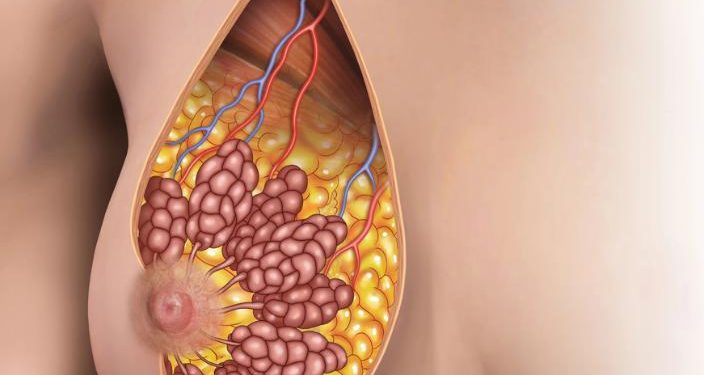Breast cancer that has spread to distant areas of the body can cause a variety of symptoms. But some of these symptoms – such as pain in the bones or fatigue – may also be caused by arthritis, a flu-type illness, or by treatment for breast cancer.
Metastatic breast cancer can spread to the bones, liver, lungs and brain. No matter where the cancer spreads, it is still called breast cancer.
Weight loss
Breast cancer cells can spread (metastasize) to other parts of the body, including bones, the lungs, liver and brain. The symptoms you may have depend on where the cancer has spread.
Sometimes the cancer can come back after treatment has finished, and this is called recurrent metastatic breast cancer. The cancer can also come back after surgery and spread to other areas of the body, like lymph nodes or the bloodstream.
If you are experiencing new and unusual symptoms, it is important to see your doctor. Your doctor will ask about your symptoms and do a physical examination. They will use these details to investigate whether your symptoms are caused by a condition that might require medical treatment.
For example, if your symptoms indicate bone metastasis, your doctor may perform a biopsy of the affected area. This involves removing a small piece of the affected tissue and testing it in the laboratory for breast cancer cells. If the test is positive, the doctor will order other tests to confirm that the cancer has spread. They may order a CT scan or ultrasound to help them find the right spot for the biopsy. They may also order blood tests to check how well your organs are working.
Fatigue
Breast cancer can spread to other parts of the body, most commonly the bones, lungs, and liver. When it does, it’s called metastatic breast cancer or stage IV breast cancer. Some people with metastatic breast cancer experience fatigue, a common side effect of the disease and its treatments.
Fatigue is a feeling of extreme tiredness that doesn’t go away, even with rest or sleep. It can interfere with your ability to do daily tasks and keep you from doing things you enjoy. It may also be a sign that the cancer has returned and is growing.
Cancer that has spread to the lungs often causes a chronic cough and shortness of breath. It can also cause a buildup of fluid between the membranes lining the lungs (pleural effusion).
If the cancer has spread to the brain, you may feel a headache, dizziness, or changes in vision or personality. It is less common for breast cancer to spread to the brain than to the lungs and liver, but it does happen.
Talk to your doctor about your fatigue. They can help you find ways to manage it. They may suggest that you try keeping a fatigue diary, which involves recording your level of tiredness every day on a scale from 1 (no fatigue) to 10 (extreme fatigue). It can help your doctor know when you need extra support.
Loss of appetite
If you are experiencing loss of appetite, it can be a sign that your cancer has spread. This happens because weakened cancer cells can remain in your body after treatment, and these can move through your bloodstream or lymphatic system to find other organs that they can colonize. This can occur despite the type of breast cancer you have. It is important that you see a doctor immediately if you experience this symptom.
Fatigue can be a common side effect of metastatic breast cancer and the treatments used to treat it. This can be due to poor diet, lack of sleep or stress and anxiety, or it can be a result of the chemotherapy or radiation you are receiving. This fatigue can also affect your ability to carry out daily tasks and make you feel less energetic.
If your cancer has spread to the bones, you may experience a dull, persistent ache or pain that gets worse during movement or at night. This can be felt in the ribs, spine or pelvic bone or the upper bones of the arms and legs. If it has spread to the liver, you can experience a loss of appetite and weight loss, fatigue, bloating or a yellowing of your skin or whites of your eyes (jaundice). The most common areas for metastatic breast cancer to spread are the bones, lungs and liver.
Nausea
Breast cancer cells may spread (metastasize) to other parts of the body. Cancer cells in the lungs, bones and liver are most common places that metastasis occurs. But breast cancer can spread to any part of the body. When it does, it is still called breast cancer — not lung cancer, bone cancer or liver cancer. It’s also referred to as advanced or stage IV breast cancer.
Metastatic breast cancer that has spread to the lungs can cause shortness of breath and persistent coughing. It’s important to talk to your doctor about this symptom. The doctor can refer you to a specialist for help managing it.
Some people with metastatic breast cancer experience nausea. This can be a side effect of chemotherapy or radiotherapy treatments, or it may be caused by the disease itself.
Nausea can interfere with getting a good night’s sleep. This can be frustrating and upsetting for someone living with a serious illness. There are things you can try to help relieve nausea, including taking a warm bath before bedtime and drinking chamomile or herbal tea. You might also find it helpful to get support from family and friends, or to explore complementary therapies like yoga and meditation.
Shortness of breath
A common symptom of metastatic breast cancer is breathlessness, also known as dyspnoea. It happens because the cancer has spread to the lungs, which are where oxygen comes in. Breast cancer that spreads to the lungs is called stage 4 breast cancer or metastatic disease. The lungs can also be affected by cancer that starts in the bones. Cancer that starts in the bones can be found in the spine, which can cause the tumors to compress vertebrae and the nerves that emerge between them. It can also affect the ribs and the sternum.
A buildup of fluid in the lungs, called a pleural effusion, can cause breathlessness. It may also be caused by a tumor pressing on the heart. If you or someone you know has these symptoms, talk to your doctor. The sooner you do, the better.
It’s important to tell your doctor about new or changing symptoms, even if you think they might be related to treatment side effects. It’s also helpful to know about the different kinds of care available for people who have metastatic breast cancer, including palliative and supportive care. This type of care focuses on managing symptoms and helping people live as comfortably as possible.









